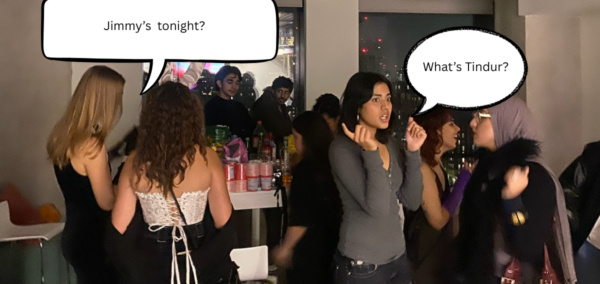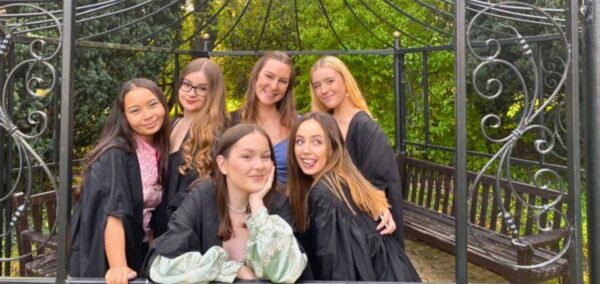
UCL lecturer banned from teaching course on China to protect uni’s ‘commercial interests’
The academic claims that universities are ‘conceding to the censorship demands of some Chinese students’
A UCL associate professor was removed from teaching a course in order to protect the university’s “commercial interests” of attracting Chinese students.
Michelle Shipworth faces complaints of being anti-Chinese for catching two students cheating and for leading a class exercise about modern slavery in China.
After her dismissal, Shipworth shared her story with The Telegraph, accusing UCL of “conceding to the censorship demands of some Chinese students.”
In response to the suspension, former Conservative Party leader, Sir Ian Duncan Smith, criticised UK universities for being “completely in hock with Chinese students.”
Ms Shipworth is an Associate Professor in UCL’s Bartlett School of Environment, Energy and Resources, teaching Master’s modules on “Energy, People and Behaviour” and “Research Concepts.”
She leaked correspondence with her head of department, who said that she was being dismissed from the course because her criticism of China threatened UCL’s business.
The department head reportedly said that “in order to be commercially viable”, UCL’s courses “need to retain a good reputation amongst future Chinese applicants.”
According to the most recent data, from the previous academic year, UCL had more than 13,000 Chinese students, making up roughly 27 per cent of the student body. International students pay substantially more than UK residents, with some having to shell out over £40,000.
Chinese students complained to their department about Ms Shipworth after an in-class activity last October in which they were asked to discuss data that claimed China had the second-highest rate of modern slavery globally.
Split into smaller groups, students were asked to consider the question: “Why are there so many slaves in China?”
Following the seminar, one Chinese student openly expressed their dissatisfaction with the class.
Most Read
Ms Shipworth recalls how they “stood up and said in a fairly cross tone – I wouldn’t even describe it as angry – something along the lines of: ‘Why are you using such a horrible provocation?’”
The lecturer denies accusations of being anti-Chinese, claiming that the activity welcomed criticism of the information and was intended to develop students’ data analysis skills.
The Associate Professor had previously faced criticism for catching two Chinese students cheating, who were later expelled. One of them used a body double to try to deceive Ms Shipworth.
Following complaints, the department began an investigation into the academic’s conduct in October.
In an email from her boss, Professor Neil Strachan, Ms Shipworth was told that another academic would replace her on the module that she had taught for 10 years.
He also instructed her to “not use teaching case studies or examples that only focus on one country” and avoid sharing “educational issues about only one country” on social media.
Prof Strachan alleged that following the cheating incident, Ms Shipworth had become “overly suspicious” of Chinese students.
He also cited the modern slavery lesson, telling Ms Shipworth that her approach made Chinese students feel targeted.
Prof Strachan said: “You used a provocative in-class exercise – investigating data quality but using the subject of slavery – that focused only on China and that made Chinese students feel demeaned”.
He also linked the specific complaints to the department’s broader commercial relationship with China, and its reliance on fees from Chinese students.
The Professor said: “The result of this perceived bias is that Chinese students are not having a good experience at UCL, and that the reputation and future recruitment of our courses is being damaged”.
Ms Shipworth went public with this information after suffering from mental health issues as a result of the measures taken by her department.
She described being “suicidal” following the restrictions imposed on her academic freedom both in the classroom and online.
Ms Shipworth also alleged that UCL is increasingly under the command of Chinese students. She explained: “I feel I have no choice but to make this matter public in order to expose the extent to which UK higher education is conceding to the censorship demands of some Chinese students.”
The Associate Professor also claimed that there is no internal process for academics to call out these problems, and they are discouraged from speaking out due to UCL’s reliance on international student fees.
She said: “Because so many universities are dependent on overseas student funding, university managers often do not want to hear these types of concerns being raised. This threatens to undermine the value of an academic degree.”
Related articles recommended by this author:
• Imperial student blackmailed by security guard over girlfriend living in halls with him
• Queen Mary guards ‘break into’ UCU offices and tear down pro-Palestine posters
Featured image via X



















